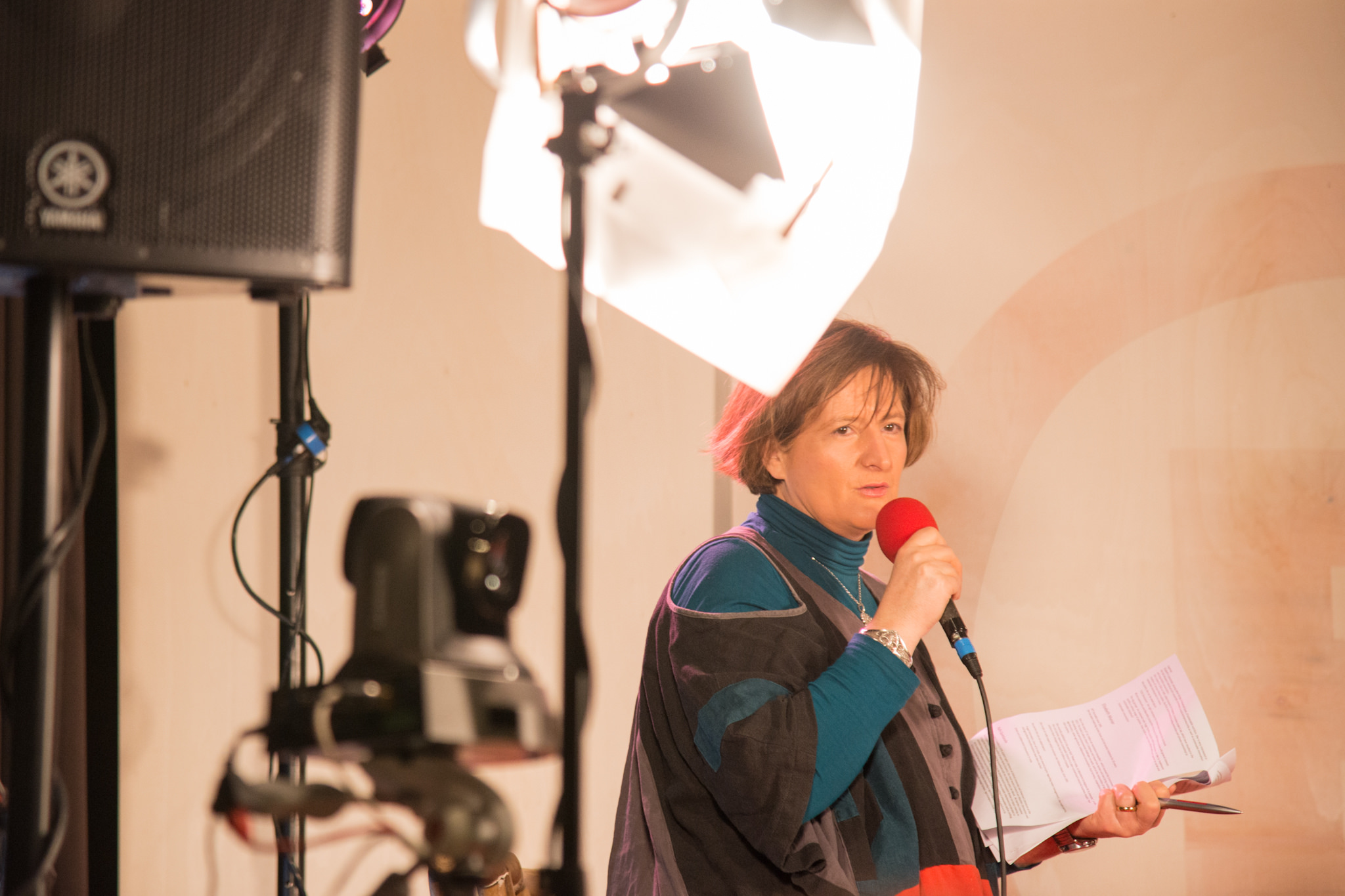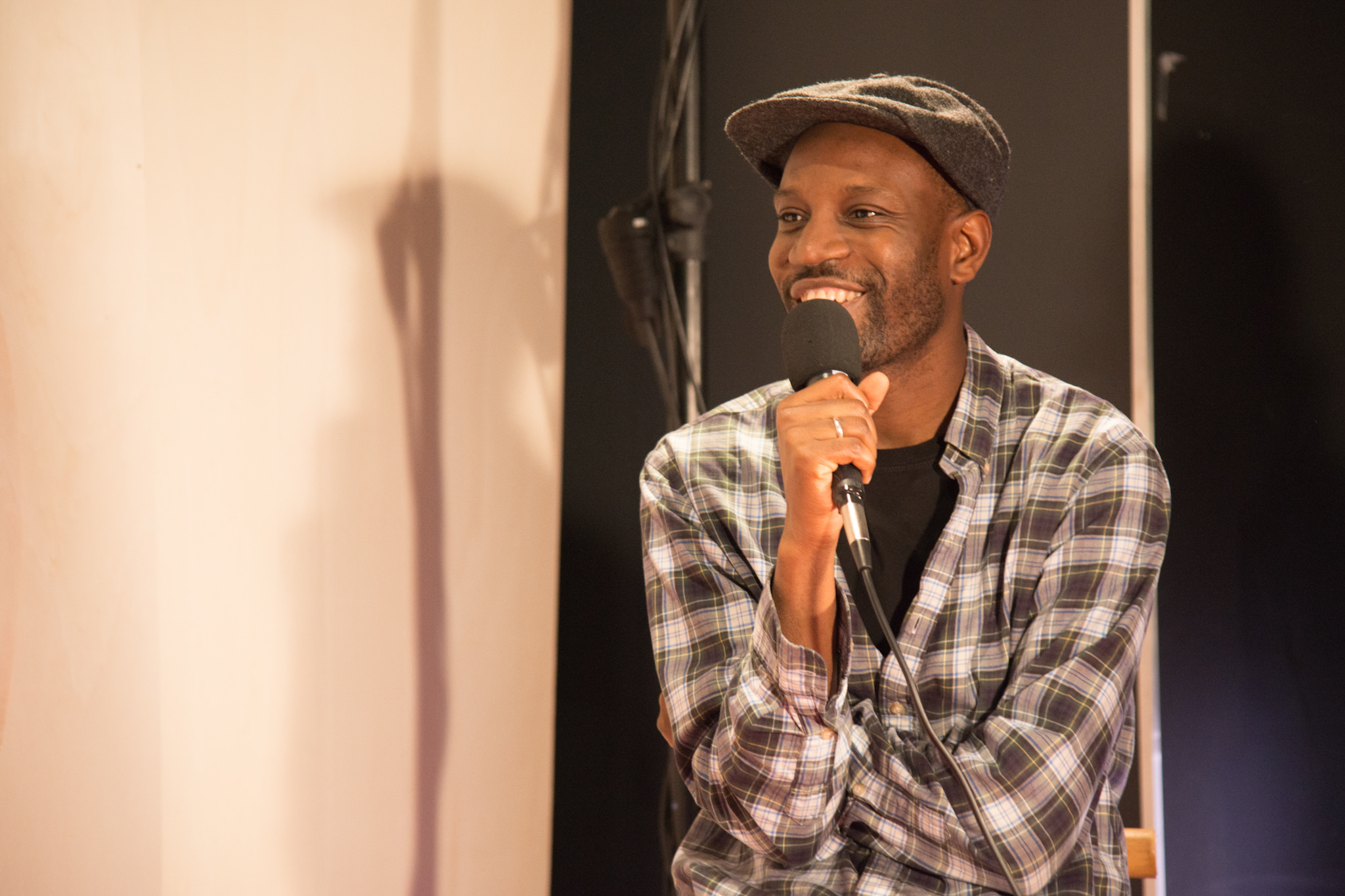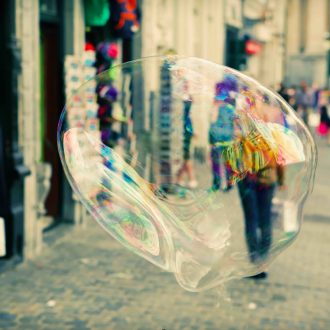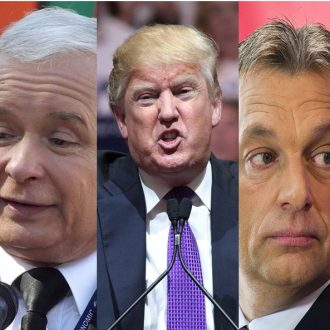Marie Bessières and Nalla Samassa (GRET) discussed some of difficulties facing southern populations – particularly in Africa – as well as the local solutions that they came to COP21 to present. Nalla Samassa suggests that compared poverty to malaria, and urges our leaders to take restrictive measures. However, although he laments that fact that renewable energies aren’t yet promoted widely enough (particularly solar energy which has huge potential in Africa), he also recognises that innovation shouldn’t be limited exclusively to technology.
Anne-Catherine Husson Traoré, Director General of Novethic, then mediated between different speakers who tried to provide answers to the following questions: How can we change economic dogmas in the coming months and years? What are companies doing to bring about change?
Firstly, Tony Meloto explained why he believes in social entrepreneurship and how company financing can help implement tools to improve life in different communities.
Elizabeth Laville didn’t share Mame Husson Traorés’ enthusiam about the changes taking place in financial markets. For her, we need to take Corporate Social Responsibility further. She described a real gap between what investors expect and what companies offer. She believes that customers are ready to adapt their behaviour, but that they aren’t provided with the right kind of offers. We need to make the rights products available to everyone in order to build a better life.
Rufo Quintavalle is investor in the green economy. For him, the solutions already exist, but they just aren’t financed. He gave the example of Costa Rica, which now uses 100% renewable energy.
Hugo Spowers, founder of Riversimple, explained how his automobile company is looking to reduce its environmental impact.
Patrick Viveret, our surprise speaker, placed the entire debate in a longer-term context stating that we can’t look into the distant future without looking into the more distant past. With modernity, we have abandoned and forgotten our relationship with nature and ethics. It’s vital that we reconnect with them.
To finish off, rapper, novelist and movie director, Abd Al Malik, talked about the role of the artist in celebrating the power of dreams and utopia, which he sees as a way of bringing about real change. He is frustrated by a system where quantity prevails over quality. “As artists, our goal is to go back to the essentials, the things that really matter… We’re trying to change things.”
Margaux Bounine-Cabalé
Translation by Victoria Wall





